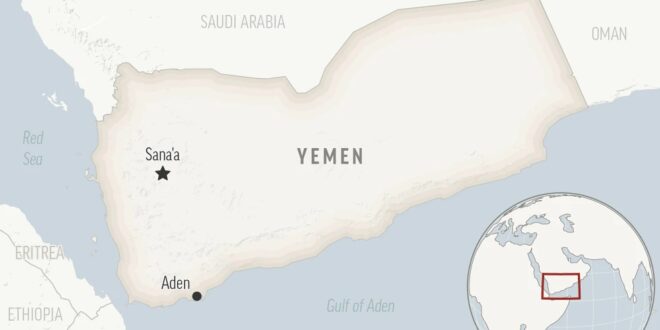A Liberian-flagged oil tanker in the Red Sea came under attack three times on Tuesday, including in an assault using a bomb-carrying drone boat, likely the latest in a campaign by Yemen’s Houthi rebels over the Israel-Hamas war, officials said.
The attacks come as the rebels’ main sponsor, Iran, weighs possible retaliation against Israel over the assassination of Hamas official Ismail Haniyeh last month in Tehran, Iran’s capital, which has renewed fears of a wider regional war in the Middle East.
Already, the Houthi assaults have disrupted the $1 trillion annual flow of goods through the maritime route crucial to trade among Asia, Europe and the Middle East, while also sparking the most intense combat for the U.S. Navy since World War II.
The Greek-managed Delta Atlantica was first attacked when two explosives detonated near it, according to the Joint Maritime Information Center, a multinational force overseen by the U.S. Navy. A small ship “flashing lights” at the vessel had come close to the loaded tanker bound for Greece during the incident, the center said.
A small ship later flashed lights at the Delta Atlantica before another explosion near it, the center said.
The third attack happened hours later on Tuesday, some 180 kilometers (110 miles) northwest of the Houthi-held port city Hodeida, prompting an armed security force aboard the tanker to open fire.
“The vessel was approached by an uncrewed surface vessel on the starboard side. The USV collided with the vessel but did not detonate,” the center said. “Subsequently, the armed security team disabled the USV via small arms fire.”
Another vessel, identified by the center as a Panama-flagged crude oil tanker called On Phoenix, also saw an explosion off its side on Tuesday, but similarly sustained no damage, the center said.
The Houthis have so far not claimed responsibility for the assaults, though sometimes they wait days to do so, and other times they have claimed attacks that appear not to have happened.
The Houthis have targeted more than 70 vessels with missiles and drones since the start of the war in Gaza in October. They have seized one vessel and sunk two in the campaign that has killed four sailors.
Other missiles and drones have been either intercepted by a U.S.-led coalition in the Red Sea or failed to reach their targets.
The rebels maintain that they have targeted ships linked to Israel, the United States or the U.K. to force an end to Israel’s war against Hamas in Gaza. However, many of the ships attacked have little or no connection to the conflict, including some bound for Iran. The center said it has not find any link between the Delta Atlantica and the war in Gaza.
The Houthis have also launched drones and missiles toward Israel, including an attack on July 19 that killed one person and wounded 10 others in Tel Aviv. Israel responded the next day with airstrikes on the Houthi-held port city of Hodeida that hit fuel depots and electrical stations, killing and wounding a number of people, the rebels say.
After the strikes, the Houthis paused their attacks until Aug. 3, when they hit a Liberian-flagged container ship traveling through the Gulf of Aden. A Liberian-flagged oil tanker came under a particularly intense series of attacks beginning Aug. 8 likely carried out by the rebels. That tanker, the Delta Blue, is managed by the same firm as the Delta Atlantica.
As Iran threatens to retaliate over Haniyeh’s killing, the U.S. military has told the USS Abraham Lincoln aircraft carrier strike group to sail more quickly to the area. America also has ordered the the USS Georgia guided missile submarine into the Mideast, while the USS Theodore Roosevelt aircraft carrier strike group had been in the Gulf of Oman.
Additional F-22 fighter jets have flown into the region, while the USS Wasp, a large amphibious assault ship carrying F-35 fighter jets, is in the Mediterranean Sea.
 Eurasia Press & News
Eurasia Press & News




